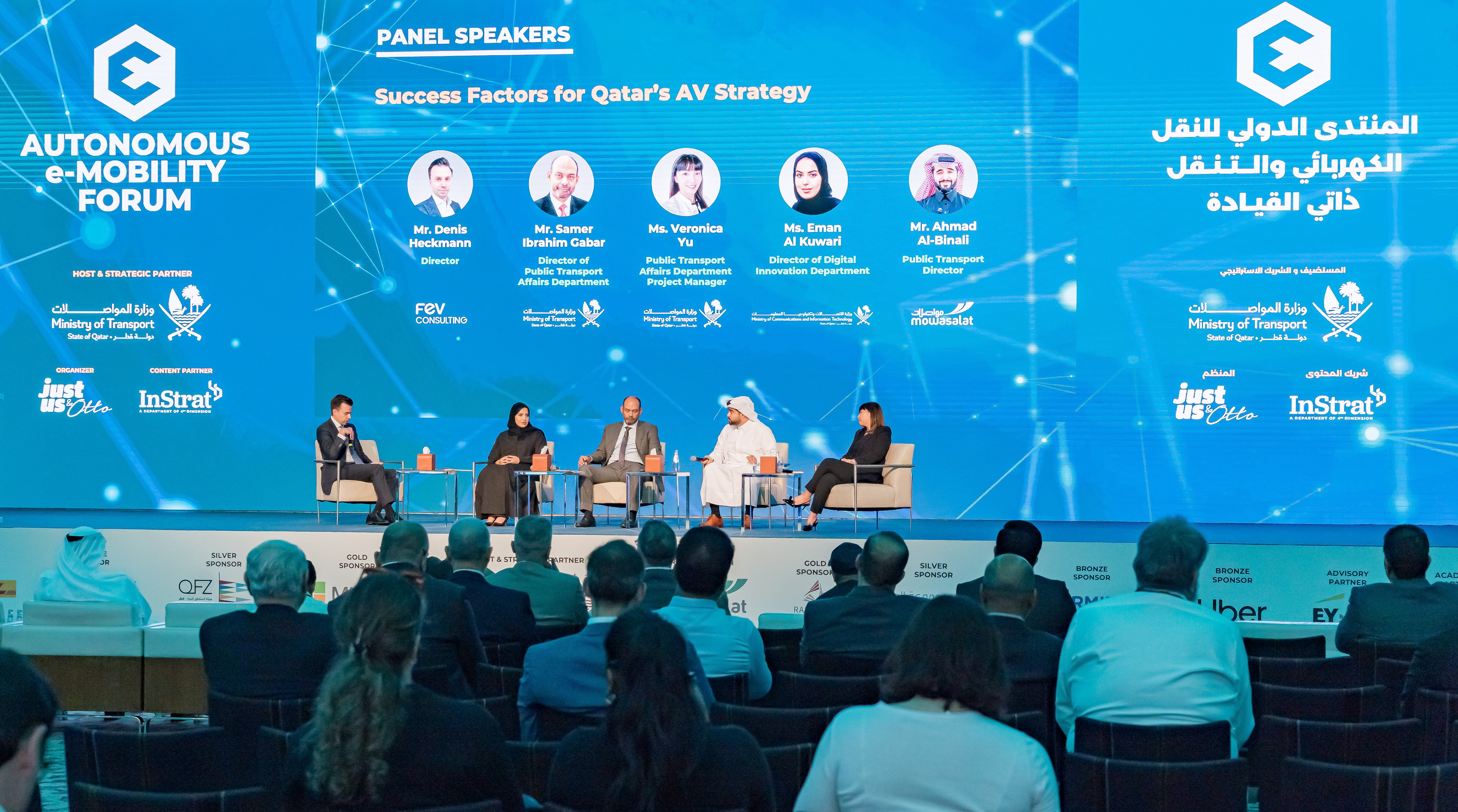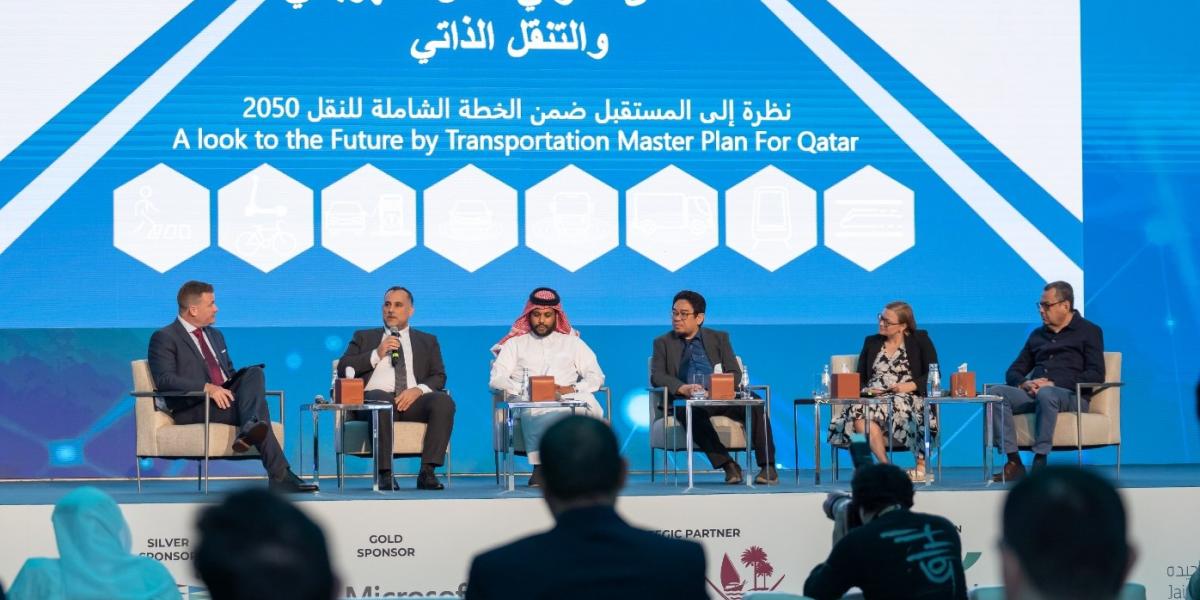The Autonomous e-Mobility Forum, held under the patronage of Minister of Transport H.E. Jassim Saif Ahmed Al-Sulaiti, concluded today at the Qatar National Convention Center (QNCC).
The two-day event was hosted by the Ministry of Transport and organized by Just us & Otto Marketing Services.
Day 2 of the Forum featured several panel discussions, where MOT panelists presented working papers on the main topic of the Forum, and MOT’s Autonomous Vehicle Strategy and Ministry efforts to put it in motion by adopting the third level of the self-driving system, the legislative and technological requirements, and the necessary digital infrastructure.
The Ministry also highlighted its strategy for the gradual and comprehensive electrification of public buses to reach 100% by 2030, supported by the Public Bus Infrastructure Program.

The Program consists of 8 bus stations in Al Sudan, Msheireb, Al Gharrafa, Lusail, Al Wakra, Education City, Industrial Area, and West Bay Central, and 4 bus depots in Lusail, the New Industrial Area, Al Wakra, and Al Rayyan. All these facilities are supported by electric charging infrastructure. The Program also includes 4 Park & Ride parking locations in Al Qassar, Al Wakra, Lusail, and Education City, that can accommodate over 1000 vehicles.
Developed in an area of more than 400,000m², the Lusail Bus Depot is recorded on the Guinness World Records as the world’s largest e-bus depot, with a capacity of 478 buses. It is the first in the Middle East to be relying on solar energy; as it includes some 11,000 PV solar panels generating 4-6 megawatts of power daily to feed its buildings, in line with Qatar's National Environment and Climate Change Strategy (QNE) and the goals of the QNV2030.
Addressing the “Defining Sustainable Mobility” panel discussion, MOT officials highlighted the Transportation Master Plan for Qatar 2050 (TMPQ)’s vision and strategic objectives, focusing particularly on the sustainability elements. The MOT carries out such plans to achieve human, financial, and environmental sustainability in the land transportation field, which is front and center in the QNV2030.

TMPQ’s sustainable transportation projects’ current priority is to broaden public transit networks, apply transportation demand management measures, and carry out infrastructure projects for electric transformation and smart transportation, many of which were delivered by the MOT over the past few years.
Day 2 panel discussions also tackled next generation railways, e-mobility retail and markets, unleashing the potential of the mobility ecosystem, advancements in maritime transport, and air mobility. Additionally, the private sector also introduced ecofriendly trucks, the first in Qatar, at the accompanying exhibition.
The closing session of the Forum recommended enhancing the exchange of expertise, knowledge and studies between stakeholders concerned with and relevant to self-driving and electric mobility, to foster cooperation over the future of the real-world rollout of autonomous and electric vehicles.
As the Forum concludes, the event sponsors were honored: Mowasalat (Karwa), the forum’s transportation partner, Qatar Railways Company (Qatar Rail) and Microsoft as gold sponsors, Al Jaidah Group and the Qatar Free Zones Authority as silver sponsors, and Al Abdul Ghani Motors, QTerminals, Uber and DHL as bronze sponsors. Also honored were the entities and companies from public and private sectors.
The delegations participating in the Forum will be taken on a tour to some of Qatar’s transportation facilities; namely the Lusail Bus Depot and Hamad Port, known for their global ecofriendly technologies and systems.


